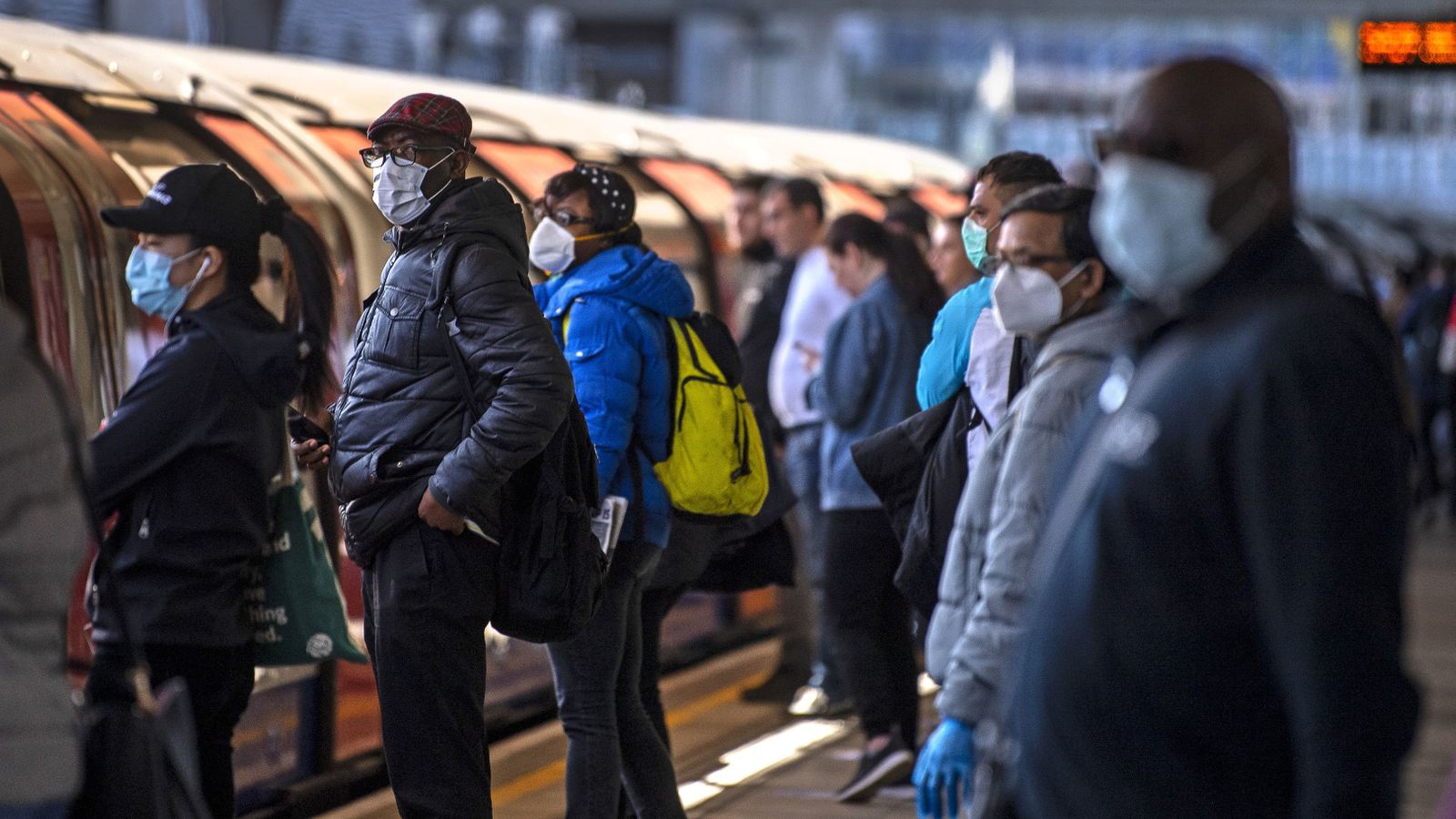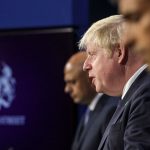The government has agreed a new £1bn bailout deal for London’s transport network – but a row looms over future revenue-raising demands and the introduction of driverless Tube trains.
A third emergency funding agreement for Transport for London (TfL) during the COVID crisis will provide around £1.08bn until 11 December to keep the capital’s buses, trains and Tubes running.
Live COVID updates from UK and around world
The coronavirus pandemic has prompted a collapse in passenger numbers and forced TfL to rely on government funding – with ministers imposing a number of conditions in exchange for the cash.
Trade union leaders warned of possible strike action in response to the “disgraceful” agreement announced on Tuesday as they vowed to fight the new terms of the bailout money.
London mayor Sadiq Khan described the fresh deal as “yet another sticking plaster”, while he also pushed back against some of the conditions included in the agreement and warned against “draconian additional measures” being imposed on TfL.
He has previously blamed a hike in travel fares across the capital on the terms of the government funding.
Under the terms of the third bailout deal, which will bring the government’s funding to more than £4bn since April last year, the Department for Transport and Mr Khan have agreed to:
• Find £300m of savings or new income sources in 2021/22
• Identify new or increased sources of revenue for TfL of between £500m to £1bn each year from 2023
• Review TfL’s pensions scheme
• Work on the implementation of higher levels of automatic train operation on the London Underground.
Transport Secretary Grant Shapps said the new funding package “will support London and its transport network through the pandemic, and ensure it is a modern, efficient and viable network for the future”.
“Throughout this process the government has maintained that these support packages must be fair to taxpayers across the UK and on the condition that action is taken to put TfL on the path to long-term financial sustainability,” he added.
“As part of today’s settlement, the mayor has agreed to further measures that will help ensure that.”
Mr Khan admitted the “extremely tough negotiations” had resulted in “not the deal we wanted”, but added: “We have successfully managed to see off the worst of the conditions the government wanted to impose on London.”
The mayor said he had been “clear” with ministers that there are “very few options” for finding the extra £500m to £1bn extra revenues per year, as he warned “forcing TfL to impose draconian additional measures on London would be unacceptable”.
Subscribe to the Daily podcast on Apple Podcasts, Google Podcasts, Spotify, Spreaker
“I am hopeful that as London bounces back from the pandemic, and income from fares continues to increase, we’ll be able to avoid introducing any unfair measures on Londoners, as the additional fares revenue may be able to meet government demands,” he added.
“It’s important to remember that TfL only needs emergency funding from the government because its income from fares dropped by up to 90% because Londoners followed the rules by staying at home and avoiding public transport during the lockdown.”
Mr Khan also vowed to “object to any future requirement to force TfL to implement driverless trains on the London Underground” as he described how the new bailout deal would see TfL “forced to undertake some early development work on the business case” on automation.
“It would cost billions of pounds and would be a gross misuse of taxpayers’ money at this critical time for our country,” he added.
Mick Lynch, general secretary of the RMT union which represents TfL workers, branded the agreement a “disgraceful stitch-up”.
“It will be resisted by our members whether it comes from Whitehall or City Hall through London wide industrial action if necessary,” he said.
“It is completely unacceptable for transport workers who have risked and in some cases tragically lost their lives to now be asked to pay this political price for the coronavirus.
“Attacks on workers’ pensions are wholly unacceptable while driverless trains are unwanted, unaffordable and unsafe.
“With funding only lasting until December, London is being held to ransom with a gun to its head rather than being given the long-term stable funding deal that is necessary to rebuild the economy as we move out of lockdown.”






















